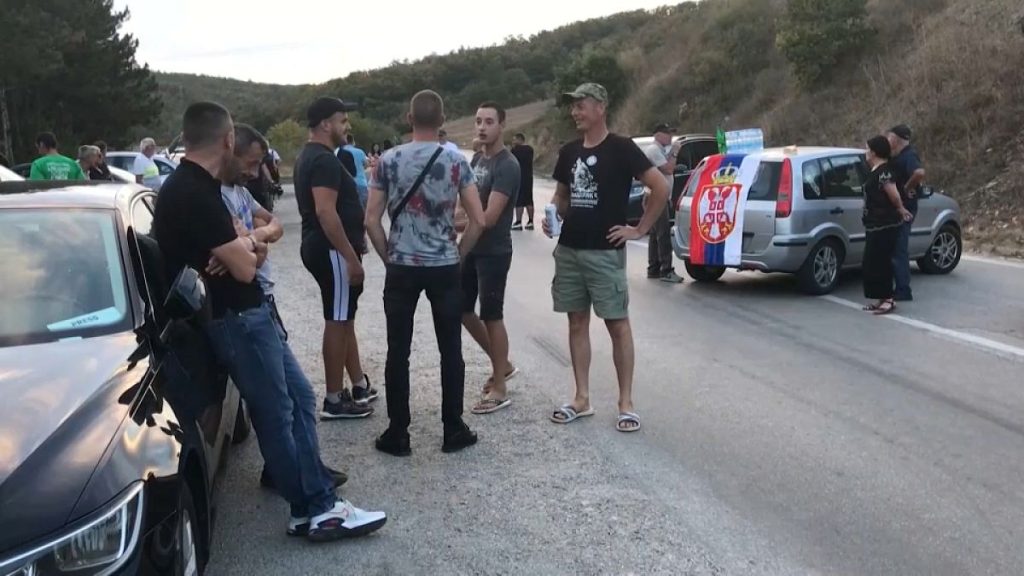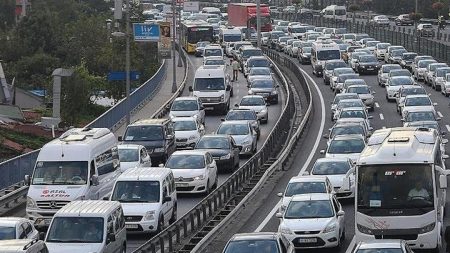Northern Kosovo, with a majority ethnic Serb population, has long been a source of tension between Pristina and Belgrade. The closure of two of the four border crossings was initiated by authorities in Kosovo after Serbian protesters blocked the road and prevented motorists with Kosovo documents from passing through. This action was a response to masked extremist groups in Serbia selectively blocking transit for travelers. In particular, activists from Kosovo and Serbia were stopping traffic at the Brnjak border crossing and only allowing drivers with Serbian documents to pass, stating that those with only Kosovar documents would not be permitted. Serbian protestors boarded buses to join the blockade in Belgrade in an attempt to support those affected.
Protesters in the region began blockading the border crossing to prevent vehicles from traveling from Kosovo into Serbia in response to the closure by Pristina authorities of parallel administrations set up by ethnic Serbs in northern Kosovo to rival the official ones. Serbia’s government currently finances health, education, and social security systems in Kosovo for the ethnic Serb population living in the north. The blockade has been ongoing until Kosovo police officers are withdrawn from the north and the Serbs’ established institutions are returned. Some protestors have also called for KFOR, the NATO-led peacekeeping force in Kosovo, to assume control over Kosovo’s northern region until this issue is resolved. The blockade is expected to continue until October 1st, with protesters waiting to see if their demands are met before taking further action.
Northern Kosovo has been a longstanding flashpoint for tensions between Belgrade and Pristina. The recent blockade comes just days after police in the region raided and closed five administrative offices linked to the Belgrade government, further escalating tensions. Earlier this year, Kosovo made the euro the only legal currency, effectively outlawing the use of the Serbian dinar. The EU envoy for the Western Balkans has urged both Kosovo and Serbia to work towards normalizing relations, stating that such efforts would be crucial for the two countries to join the bloc. NATO’s bombing campaign in 1999 ended the war between Serbian government forces and ethnic Albanian separatists in Kosovo, resulting in Kosovo’s independence being declared in 2008. However, Serbia does not recognize Kosovo’s independence, leading to an uneasy relationship between the two sides.
The closure of two border crossings highlights the ongoing tensions between Pristina and Belgrade, particularly in Northern Kosovo with its majority Serb population. The actions of protestors from both Kosovo and Serbia have led to blockades and restrictions on border traffic, further exacerbating the situation. The closure of parallel administrations set up by ethnic Serbs in northern Kosovo has been a key point of contention, with demands for Kosovo police withdrawal and the return of Serb institutions. The involvement of KFOR and UNMIK has also been suggested by Serbian activists as a means to resolve the issue and protests are expected to continue until their demands are met.
The blockade in northern Kosovo underscores the complex relationship between Pristina and Belgrade and the ongoing disputes over Kosovo’s independence. The recent actions by authorities in Kosovo and protesters from Serbia have further strained relations and heightened tensions in the region. The EU’s call for normalization of relations between the two sides is seen as crucial for their future prospects of joining the bloc. The history of conflict in the region, including NATO’s intervention in 1999 and the subsequent declaration of Kosovo’s independence, has created a challenging political landscape that continues to impact the relationship between Serbia and Kosovo. Efforts to address these issues and find a peaceful resolution are essential for stability in the region and the potential for future integration into the European Union.















